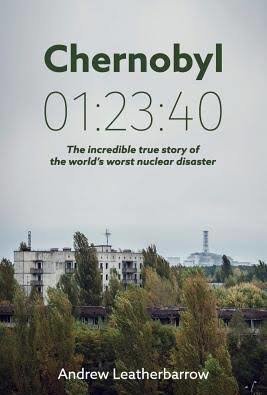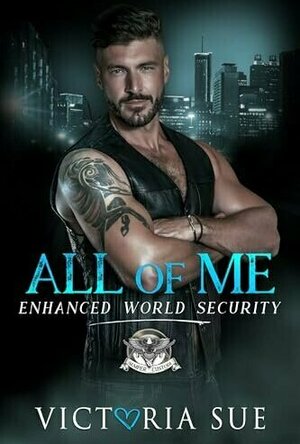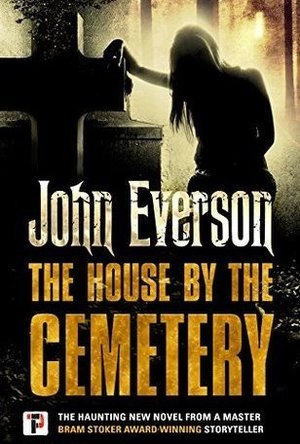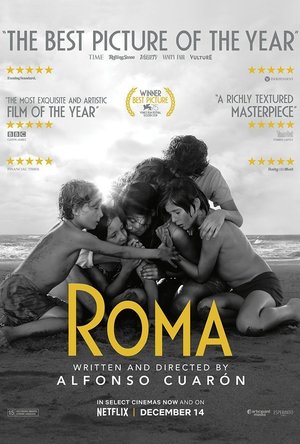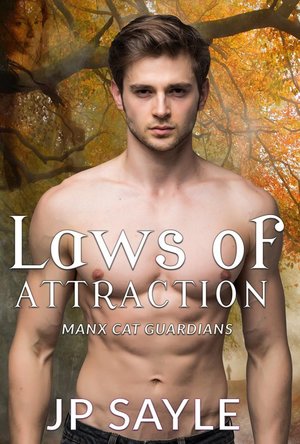Search
Andrew Leatherbarrow’s Chernobyl 01:23:40: The Incredible True Story of the World’s Worst Nuclear Disaster is an excellent starting point for readers new to the history of nuclear power. When I’m at home, I am just barely outside the fallout range for Arkansas Nuclear One (ANO). While I’m at work, I’m in the reactor’s back yard. As a result, I figured there was no better time to learn a thing or two about nuclear energy. I was not disappointed.
Chernobyl 01:23:40 is the product of a spontaneous trip Leatherbarrow took to visit the Chernobyl Exclusion Zone and Pripyat. In this book, he details his experience in Chernobyl, explains nuclear energy in easy to grasp terms, and discusses the incidents leading up to and after the disaster. For those that know little to nothing about nuclear energy, this book is a must-read.
Despite our close proximity to ANO, I cannot recall learning about nuclear energy. As children, our teachers explained what to do in case of an incident at the plant and nothing else. As expected, due to lack of education about reactors and their failsafes, I grew up with an unnecessary fear of ANO. For this reason, I am grateful for Leatherbarrow’s book. What happened at Chernobyl is the product of failure to follow protocol; it is also the result of improper training. Because there are so many safety precautions, the chance of incident is actually fairly small. (Also, ANO is not an RBMK-1000 reactor like Chernobyl.)
In addition to this fear, I have a vested interest in Chernobyl. It’s haunting photos, like all ghost towns, leave me in awe. There is no doubt in my mind that Leatherbarrow spent a long time conducting research. Using various sources, he has crafted a detailed narrative of what happened at Chernobyl. His book also gives voice to some of the reactor’s victims.
Nuclear energy is dangerous. I will not deny that. However, it is also our cleanest resource. While Chernobyl 01:23:40 is only a glimpse into the world of nuclear power, it is a truly eye-opening account brimming with facts.
Chernobyl 01:23:40 is the product of a spontaneous trip Leatherbarrow took to visit the Chernobyl Exclusion Zone and Pripyat. In this book, he details his experience in Chernobyl, explains nuclear energy in easy to grasp terms, and discusses the incidents leading up to and after the disaster. For those that know little to nothing about nuclear energy, this book is a must-read.
Despite our close proximity to ANO, I cannot recall learning about nuclear energy. As children, our teachers explained what to do in case of an incident at the plant and nothing else. As expected, due to lack of education about reactors and their failsafes, I grew up with an unnecessary fear of ANO. For this reason, I am grateful for Leatherbarrow’s book. What happened at Chernobyl is the product of failure to follow protocol; it is also the result of improper training. Because there are so many safety precautions, the chance of incident is actually fairly small. (Also, ANO is not an RBMK-1000 reactor like Chernobyl.)
In addition to this fear, I have a vested interest in Chernobyl. It’s haunting photos, like all ghost towns, leave me in awe. There is no doubt in my mind that Leatherbarrow spent a long time conducting research. Using various sources, he has crafted a detailed narrative of what happened at Chernobyl. His book also gives voice to some of the reactor’s victims.
Nuclear energy is dangerous. I will not deny that. However, it is also our cleanest resource. While Chernobyl 01:23:40 is only a glimpse into the world of nuclear power, it is a truly eye-opening account brimming with facts.
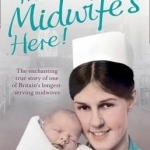
The Midwife's Here: The Enchanting True Story of One of Britain's Longest Serving Midwives
Book
The Sunday Times bestseller 'Delivering my first baby is a memory that will stay with me forever....
Debbiereadsbook (1647 KP) rated All of Me (Enhanced World Security #2) in Books
Apr 8, 2025
excellent second book in the series!
Independent reviewer for GRR, I was gifted my copy of this book.
This is the second book in the Enhanced Security series, and I strongly recommend that you read One Step Sideways before this one. This book follows on a few months after that one.
Shae is damaged due to the experimentation on his ability. He is super fast, but right now, a snail could out pace him. He just wishes that Ringo wanted him, and hadn't ran. Finding out Shae is in danger means Ringo has to face the man Shae has become. And neither man can resist the other once they are in close proximity. But someone is trying to kill them, and they'll need all their wits about them to keep the other safe.
First up, I loved that Shae, and ONLY Shae was allowed to call Ringo by his given name of Drake. And I'll be using that name throughout the rest of the review, just to annoy Drake!
What I loved most about this book, was the plot line. I struggled to see where it was going, how it was going and what the outcome might be. I struggled to keep up, and I had to double back to reread a few pages, to get the full picture. I still did not see how it would all come together until it did and I LOVED being kept on my toes!
I loved that even though Drake was a lot older than Shae, Shae knew he was the one for him. And he took time to show Drake that. Drake took far longer to get with the programme though and his team mates were one step away from a darn intervention! They still made him see just what he could have with Sahe if he got his head out his behind though.
Danny and Kane take part as do must of Rawlings Security at some point or other. Couple of the original guys do also take part, if only at a distance.
But something's going on, with the Enhanced guys finding their mates (but that word is not used here, I'm using it!) Kane's sight developed expotentially, and Shae speed and healing rate grew here. It's been a while since I read the main series, and I can't remember if those guys abilities grew when they met their match or not. Just a random rambling in my book brain, is all!
Loved this, I need more!
5 full and shiny stars
*same worded review will appear elsewhere
This is the second book in the Enhanced Security series, and I strongly recommend that you read One Step Sideways before this one. This book follows on a few months after that one.
Shae is damaged due to the experimentation on his ability. He is super fast, but right now, a snail could out pace him. He just wishes that Ringo wanted him, and hadn't ran. Finding out Shae is in danger means Ringo has to face the man Shae has become. And neither man can resist the other once they are in close proximity. But someone is trying to kill them, and they'll need all their wits about them to keep the other safe.
First up, I loved that Shae, and ONLY Shae was allowed to call Ringo by his given name of Drake. And I'll be using that name throughout the rest of the review, just to annoy Drake!
What I loved most about this book, was the plot line. I struggled to see where it was going, how it was going and what the outcome might be. I struggled to keep up, and I had to double back to reread a few pages, to get the full picture. I still did not see how it would all come together until it did and I LOVED being kept on my toes!
I loved that even though Drake was a lot older than Shae, Shae knew he was the one for him. And he took time to show Drake that. Drake took far longer to get with the programme though and his team mates were one step away from a darn intervention! They still made him see just what he could have with Sahe if he got his head out his behind though.
Danny and Kane take part as do must of Rawlings Security at some point or other. Couple of the original guys do also take part, if only at a distance.
But something's going on, with the Enhanced guys finding their mates (but that word is not used here, I'm using it!) Kane's sight developed expotentially, and Shae speed and healing rate grew here. It's been a while since I read the main series, and I can't remember if those guys abilities grew when they met their match or not. Just a random rambling in my book brain, is all!
Loved this, I need more!
5 full and shiny stars
*same worded review will appear elsewhere
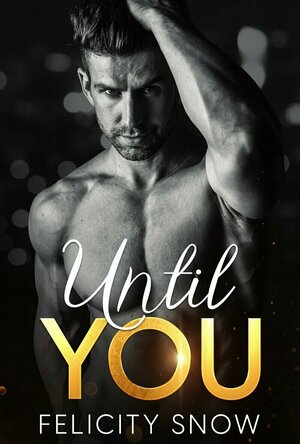
Until You
Book
Paul It feels like I’ve been drowning for five years, barely keeping my head above the water. I...
Contemporary MM Romance
Acanthea Grimscythe (300 KP) rated The House by the Cemetery in Books
Jan 31, 2019 (Updated Feb 2, 2019)
I have a love-hate relationship with The House by the Cemetery by John Everson, and it’s really tearing me apart. I absolutely enjoyed the story itself, but there’s a few issues, one of which is a huge red flag, that I simply can’t allow to go unspoken–and if other reviews are any clue, I’m not the only one that’s immensely bothered by it.
The story involves a witch that died in 1963, a haunted house, a haunted house attraction, and a lot of characters (too many to keep track of without a notebook, actually). Hired to repair the haunted house so that guests can safely walk through it, Mike Kostner spends much of his time drinking beer and talking with the girls, Katie and Emery. At the same time, Jeanie’s been hired on as a makeup artist for the upcoming attraction and drags her boyfriend, Bong, into it. Then there’s Jillie and Ted, paranormal investigators. And then there are three other groups of people to form more members of the cast, which I found to be extremely overwhelming.
At this point in my review, I usually talk about characters and their development, what I like about them, what I don’t, etc. In this case, I can’t really do that. The only character I managed to forge any sort of emotional connection with was Jeanie, and it’s mainly sympathetic. As for the rest of the roles played, I’m largely disappointed. Why? Because there’s a severe lack of sensitivity in this novel–which has been mentioned in several other reviews. There are four characters whose sole defining characteristic is either their race or their weight. There’s no depth given beyond that to them as an individual. The remarks dealing with weight are largely shaming and those dealing with race are stereotypical. And here’s where I’m going to take a moment to discuss the character Bong, which I feel is the most blatant insult to another race’s customs that I’ve seen in a long time.
Bong’s full name is Bong-soon Mon. Phonetically, that sounds a lot like “bong soon man.” It’s not overly obvious if you’re not familiar with Korean names, and Bong-soon is an actual name used in the drama Strong Woman Do Bong Soon. However, in this case, Everson shortens Bong-soon, which is actually the character’s name (whether it’s his first or last, I’m not sure), to Bong. Thus he makes it more of a laughing matter (really, it’s not funny), whether it’s intentional or unintentional. Usually I’m not sensitive to these types of material, but in this book the way it comes across is really bothersome and, like several other readers, I agree with the idea that this book desperately needs an edit for sensitivity. Please bear in mind that I read an arc of this book and so I’m not sure if any of these issues were addressed in the final publication.
EDIT: After speaking with the author, he explained to me that the reason he shortened the name as he did comes from personal experience with someone that had the same name, and what they went by. Everson also assured me it was not his intent to fat shame those characters. I really appreciate that he reached out to me, and feel it's important that my misconception be corrected, but not hidden.
Plotwise, I adored this book. I can’t go too much into detail without sharing spoilers, but I can say this: the Everson does have a talent for creating beautifully grisly, albeit somewhat repetitive, scenes. The bloodbath that takes place near the end of the book is a glorious gore-fest that I felt the rest of the story worked up to quite well, even if it crawled earlier on while Mike was working on the house. As for the setting, it’s well written. I liked the idea of a house next to a cemetery, and its easy to infer its age without being told: it’s too close to a turnpike to have been put there before the turnpike was built. I was, however, confused by the juxtaposition of a heavily wooded house and cemetery in close proximity to a city or town, as in my experience turnpikes usually don’t have exits between major locales. At least, not very many present-day ones do, as most of them have been converted to, or created as, a controlled-access highway, where intersecting roads tend to cross over or under so that they do not impede traffic. That said, it strikes me as weird that a single house and cemetery would have an exit from a turnpike.
So I decided to google cemeteries and turnpikes, and what did I find? Bachelor’s Grove Cemetery is an actual haunted locale found in the suburbs of Chicago. And yes, it actually is that close to a turnpike! If you like to watch Ghost Adventures, the cemetery was featured in a 2012 episode. Also, the cemetery is extremely old. Even better? Many of the ghost stories referenced in the book are actual tales surrounding the cemetery. It’s actually pretty fascinating and I wouldn’t even have known about it were it not for Everson’s book.
Overall, I did enjoy reading this book. I loved the homage to horror movies of all types, including lesser known genres. I absolutely adored the way in which some of the characters were manipulated, too. Hence why I stated early in this review that I have a love-hate relationship with it. Because of the lack of sensitivity though, and the way I was made to feel as a reader because of it (I’m overweight, after all), I can’t give it more than three skulls.
I’d like to thank the publisher and NetGalley for providing me with a free copy of this book for review.
The story involves a witch that died in 1963, a haunted house, a haunted house attraction, and a lot of characters (too many to keep track of without a notebook, actually). Hired to repair the haunted house so that guests can safely walk through it, Mike Kostner spends much of his time drinking beer and talking with the girls, Katie and Emery. At the same time, Jeanie’s been hired on as a makeup artist for the upcoming attraction and drags her boyfriend, Bong, into it. Then there’s Jillie and Ted, paranormal investigators. And then there are three other groups of people to form more members of the cast, which I found to be extremely overwhelming.
At this point in my review, I usually talk about characters and their development, what I like about them, what I don’t, etc. In this case, I can’t really do that. The only character I managed to forge any sort of emotional connection with was Jeanie, and it’s mainly sympathetic. As for the rest of the roles played, I’m largely disappointed. Why? Because there’s a severe lack of sensitivity in this novel–which has been mentioned in several other reviews. There are four characters whose sole defining characteristic is either their race or their weight. There’s no depth given beyond that to them as an individual. The remarks dealing with weight are largely shaming and those dealing with race are stereotypical. And here’s where I’m going to take a moment to discuss the character Bong, which I feel is the most blatant insult to another race’s customs that I’ve seen in a long time.
Bong’s full name is Bong-soon Mon. Phonetically, that sounds a lot like “bong soon man.” It’s not overly obvious if you’re not familiar with Korean names, and Bong-soon is an actual name used in the drama Strong Woman Do Bong Soon. However, in this case, Everson shortens Bong-soon, which is actually the character’s name (whether it’s his first or last, I’m not sure), to Bong. Thus he makes it more of a laughing matter (really, it’s not funny), whether it’s intentional or unintentional. Usually I’m not sensitive to these types of material, but in this book the way it comes across is really bothersome and, like several other readers, I agree with the idea that this book desperately needs an edit for sensitivity. Please bear in mind that I read an arc of this book and so I’m not sure if any of these issues were addressed in the final publication.
EDIT: After speaking with the author, he explained to me that the reason he shortened the name as he did comes from personal experience with someone that had the same name, and what they went by. Everson also assured me it was not his intent to fat shame those characters. I really appreciate that he reached out to me, and feel it's important that my misconception be corrected, but not hidden.
Plotwise, I adored this book. I can’t go too much into detail without sharing spoilers, but I can say this: the Everson does have a talent for creating beautifully grisly, albeit somewhat repetitive, scenes. The bloodbath that takes place near the end of the book is a glorious gore-fest that I felt the rest of the story worked up to quite well, even if it crawled earlier on while Mike was working on the house. As for the setting, it’s well written. I liked the idea of a house next to a cemetery, and its easy to infer its age without being told: it’s too close to a turnpike to have been put there before the turnpike was built. I was, however, confused by the juxtaposition of a heavily wooded house and cemetery in close proximity to a city or town, as in my experience turnpikes usually don’t have exits between major locales. At least, not very many present-day ones do, as most of them have been converted to, or created as, a controlled-access highway, where intersecting roads tend to cross over or under so that they do not impede traffic. That said, it strikes me as weird that a single house and cemetery would have an exit from a turnpike.
So I decided to google cemeteries and turnpikes, and what did I find? Bachelor’s Grove Cemetery is an actual haunted locale found in the suburbs of Chicago. And yes, it actually is that close to a turnpike! If you like to watch Ghost Adventures, the cemetery was featured in a 2012 episode. Also, the cemetery is extremely old. Even better? Many of the ghost stories referenced in the book are actual tales surrounding the cemetery. It’s actually pretty fascinating and I wouldn’t even have known about it were it not for Everson’s book.
Overall, I did enjoy reading this book. I loved the homage to horror movies of all types, including lesser known genres. I absolutely adored the way in which some of the characters were manipulated, too. Hence why I stated early in this review that I have a love-hate relationship with it. Because of the lack of sensitivity though, and the way I was made to feel as a reader because of it (I’m overweight, after all), I can’t give it more than three skulls.
I’d like to thank the publisher and NetGalley for providing me with a free copy of this book for review.
Justin Patchett (42 KP) rated Roma (2018) in Movies
Mar 3, 2019
Caught in a bad Roma
Contains spoilers, click to show
It’s been a long while since I watched a film deserving of a truly, harshly negative review. I have gotten so close so many times, and I’ll be damned if Netflix hadn’t gotten close to earning that with the fridge-logic that ruined Bird Box. Even Bird Box, though, feels enjoyable in retrospect compared to another Netflix exclusive: Alfonso Cuarón’s Roma.
Since I’m in a clear minority on this film, I feel obligated to preemptively address some common criticisms. If Roma had been produced in English, presented in color and with any score, it couldn’t fix the fact that I simply dislike Roma’s genre. Sure, I’ve liked slice-of-life drama films, and modern period pieces do fine by me. Pretentious Oscar-farming arthouse flicks like this, though, never win my praise.
Roma follows Cleo, a housemaid in Mexico City. Cleo has gotten pregnant and the presumed father, Fermín, leaves her to buy cigarettes before the baby’s even born. Her employer, Sofía, is dealing with a cheating spouse. What follows is two hours of both of these women marginally helping each other with their respective situations. As slice-of-life films do.
Since it's a slice-of-life film, much of the story just basically happens. You'll remember a scene here or there that happened, even if it was ultimately insignificant. In one scene for instance, Cleo goes to confront the baby daddy, who’s at a huge martial arts class. She spectates and proves to be the only one able to perform a certain yoga pose. Which is important because it helped add another few minutes to the film.
Cleo goes into labor not long after this confrontation, but her daughter ends up being stillborn. This all happens in the midst of the Corpus Christi Massacre. What the heck was the Corpus Christi Massacre, you may ask? According to this film, it was a brutal inconvenience on Cleo’s way to the hospital after her water breaks. This actual historical event simply happens and is never addressed for one second more. You know, just like in Titanic where the shipwreck just makes things inconvenient for Rose and Jack.
The last major scene in the film comes when Sofía invites Cleo to come with her family on a trip to the beach, not as staff but to help Cleo cope with the tragedy of losing her child. While they’re there, Sofía leaves the children in Cleo’s care for two freaking minutes, and two of the kids nearly drown. Cleo, though, can’t swim, and so she stands out in the water as the kids rescue each other. And that's about as close as Roma gets to a cohesive plot. Cleo only came with them to help her grieving, which meant she could be there to be powerless while her employer’s kids save each other’s lives. Bad things happen to us, the film teaches, so that good things can coincidentally happen in our proximity.
In fact, coincidence seems to be the running theme, here. Remember the Corpus Christi Massacre? No? What if I call it “the scene where Cleo goes into labor”? Maybe that helps? Fermín briefly held Cleo at gunpoint in the middle of it. Again, mere coincidence. Just like it’s a mere coincidence that she goes into labor the same day as a massacre that killed 120 people. As coincidences do.
Roma isn’t an aggressively bad film. There are a rare few moments within Roma’s 2-hour runtime where you think, “I can see that clip showing up during a Facebook video binge,” but again: These are moments more rare than our current president ordering a rare steak. That rarity has everything to do with the fact that the movie has so few moments, at all. The rest is shots that linger too long from angles that repeat themselves all too often. It’s like Cuarón asked someone, “What does a movie like Juno need to be better?” They responded, “Nothing.” So Cuarón packed Roma with nothing.
Which brings up one of my biggest criticisms of Roma: The cinematography is bland. Cuarón shot practically the entire film on one camera, set a specific distance from the subject, and kept takes running as longer than they should have, padding out a short-film’s worth of content to feature length. It’s bland cinematography that somehow earned an Oscar for Best Cinematography.
Gravity showed us what Cuarón was capable of. Beyond bringing a seemingly authentic view of space to the big screen, Gravity offered variety. Yes, the huge collision scene in Gravity takes on the feel of a one-take scene, but even then, the camera moves with the action. And if your attention moves away from the foreground the shot, you’re able to see other important things going on. With Roma, though, your foreground is your film. Period. And to be sure, you'll be kept at arm's length from that foreground at all times, both metaphorically and cinematically.
There's a number of reasons why Roma wasn't the Best Picture, this year. Gravity proved that Roma is not Cuarón’s best film. Bo Burnham–yes, that Bo Burnham–wrote and directed a better slice-of-life film with Eighth Grade. And Roma might not even be the past year’s best black-and-white film; I dare suggest that Cold War may have been better.
To give it the credit it’s due, Roma’s cast rightly earned nominations for their performances. Yalitza Aparicio and Marina de Tavira earned Best Actress nominations for their roles, and for their part, their performances were authentic as can be. It's the least the Academy could do for having them endure Cuarón's lengthy takes.
But now that I've given it credit, I demand my time back for the scene of Fermín going Star Wars Kid meets Full Monty.
Since I’m in a clear minority on this film, I feel obligated to preemptively address some common criticisms. If Roma had been produced in English, presented in color and with any score, it couldn’t fix the fact that I simply dislike Roma’s genre. Sure, I’ve liked slice-of-life drama films, and modern period pieces do fine by me. Pretentious Oscar-farming arthouse flicks like this, though, never win my praise.
Roma follows Cleo, a housemaid in Mexico City. Cleo has gotten pregnant and the presumed father, Fermín, leaves her to buy cigarettes before the baby’s even born. Her employer, Sofía, is dealing with a cheating spouse. What follows is two hours of both of these women marginally helping each other with their respective situations. As slice-of-life films do.
Since it's a slice-of-life film, much of the story just basically happens. You'll remember a scene here or there that happened, even if it was ultimately insignificant. In one scene for instance, Cleo goes to confront the baby daddy, who’s at a huge martial arts class. She spectates and proves to be the only one able to perform a certain yoga pose. Which is important because it helped add another few minutes to the film.
Cleo goes into labor not long after this confrontation, but her daughter ends up being stillborn. This all happens in the midst of the Corpus Christi Massacre. What the heck was the Corpus Christi Massacre, you may ask? According to this film, it was a brutal inconvenience on Cleo’s way to the hospital after her water breaks. This actual historical event simply happens and is never addressed for one second more. You know, just like in Titanic where the shipwreck just makes things inconvenient for Rose and Jack.
The last major scene in the film comes when Sofía invites Cleo to come with her family on a trip to the beach, not as staff but to help Cleo cope with the tragedy of losing her child. While they’re there, Sofía leaves the children in Cleo’s care for two freaking minutes, and two of the kids nearly drown. Cleo, though, can’t swim, and so she stands out in the water as the kids rescue each other. And that's about as close as Roma gets to a cohesive plot. Cleo only came with them to help her grieving, which meant she could be there to be powerless while her employer’s kids save each other’s lives. Bad things happen to us, the film teaches, so that good things can coincidentally happen in our proximity.
In fact, coincidence seems to be the running theme, here. Remember the Corpus Christi Massacre? No? What if I call it “the scene where Cleo goes into labor”? Maybe that helps? Fermín briefly held Cleo at gunpoint in the middle of it. Again, mere coincidence. Just like it’s a mere coincidence that she goes into labor the same day as a massacre that killed 120 people. As coincidences do.
Roma isn’t an aggressively bad film. There are a rare few moments within Roma’s 2-hour runtime where you think, “I can see that clip showing up during a Facebook video binge,” but again: These are moments more rare than our current president ordering a rare steak. That rarity has everything to do with the fact that the movie has so few moments, at all. The rest is shots that linger too long from angles that repeat themselves all too often. It’s like Cuarón asked someone, “What does a movie like Juno need to be better?” They responded, “Nothing.” So Cuarón packed Roma with nothing.
Which brings up one of my biggest criticisms of Roma: The cinematography is bland. Cuarón shot practically the entire film on one camera, set a specific distance from the subject, and kept takes running as longer than they should have, padding out a short-film’s worth of content to feature length. It’s bland cinematography that somehow earned an Oscar for Best Cinematography.
Gravity showed us what Cuarón was capable of. Beyond bringing a seemingly authentic view of space to the big screen, Gravity offered variety. Yes, the huge collision scene in Gravity takes on the feel of a one-take scene, but even then, the camera moves with the action. And if your attention moves away from the foreground the shot, you’re able to see other important things going on. With Roma, though, your foreground is your film. Period. And to be sure, you'll be kept at arm's length from that foreground at all times, both metaphorically and cinematically.
There's a number of reasons why Roma wasn't the Best Picture, this year. Gravity proved that Roma is not Cuarón’s best film. Bo Burnham–yes, that Bo Burnham–wrote and directed a better slice-of-life film with Eighth Grade. And Roma might not even be the past year’s best black-and-white film; I dare suggest that Cold War may have been better.
To give it the credit it’s due, Roma’s cast rightly earned nominations for their performances. Yalitza Aparicio and Marina de Tavira earned Best Actress nominations for their roles, and for their part, their performances were authentic as can be. It's the least the Academy could do for having them endure Cuarón's lengthy takes.
But now that I've given it credit, I demand my time back for the scene of Fermín going Star Wars Kid meets Full Monty.

WingX Pro7 - Aviation Moving Map, Charts, Weather
Navigation and Travel
App
WingX Pro7's simple subscription model: ● $74.95 annual subscription (or $199.95 for 3 years) ●...
Debbiereadsbook (1647 KP) rated Laws of Attraction (The Manx Cat Guardians #6) in Books
Apr 29, 2019
i had another hissy fit!
Independent reviewer for Archaeolibrarian, I was gifted my copy of this book.
This is book 6 in the Manx Cat Guardians series, and you really SHOULD read the other books first. There is MUCH referenced to, but not fully explained, from those books, and you will need to know what’s happened before now. And, you know, I TOLD you to!
Nick has had an attraction to his brother’s best friend, Brody, since he was a child. Now, on the Isle of Man, working on Aaden and Greg’s new kitchen, with Brody in close proximity, Nick can no longer hide his feelings. Brody’s reaction to Nick at Christmas has him questioning everything he ever thought about the squirt. When a certain witchy-poo's involvement in both men’s feelings come to light, and that spell is lifted, Brody is confused about some things, but he knows this: Nick is HIS. They just need to get to the bottom of Brody’s true feelings, what Nick thinks happened all that time ago, and just how deep that witch went with her spell.
So, yes, book 6, but I’ve been awaiting this one since we met Nick and Brody in book 4, Searching For A Soul to Love. Nick is Aaden’s younger brother and Brody his best friend. There were some hints to this book in that one, and a development in 12 Disasters of Christmas and this one does not disappoint!
Well, it DOES, just a tad, and I’m being petty, I know but these books tend to bring out my darkest thoughts, and also the most extreme! I wanted Nick and Brody to get together FAR sooner in this book! They do get together, I just had to wait til nearly the end for the main event! Oh don’t get me wrong, its sexy, and steamy and hawt as hell in places, but for the final joining of their souls and bodies? FAR too long I had to wait! And this is why I can’t stretch to 5 stars!
Everyone has a say, EVERYONE! Brody and Nick, mostly, but some of the other guys get a few minutes too. We also get a lot of that witchy-poo, Christina, and how she spelled Brody and Nick all that time ago, and WHY she did it. And now she’s paying the price for that: but she was warned! She is working off her penance, helping to find out who is trying to sabotage Greg at work and she wants her magic back. She does NOT like feeling human! Some amusing moments, though, for Christina and her body without magic.
King Manannan has a say, and we get how he feels about said witch. Which was totally unexpected! I did not see that coming! There are a lot of HINTS about what Christina is to the King, and about something that her father did to her as a child, but these are not fully explained and I wanted to know! Again, the extremes these books drag out of me! I was like, JUST BLOODY TELL ME!! And Ms Sayle, in true fashion, does not tell me, and so again, I spat me dummy out and threw my toys out the pram and everything, A-BLOODY-GAIN!
And we meet Ellie, and Cam, who are the stars of the next book. And even though THEY didn’t meet each other, I have a feeling their book will be quite explosive. So, write quicker, please!
Because I had to wait so bloody long for the main event, and because my questions about the King and Christina are NOT answered (but I think HERE, everyone will be asking questions about those two!) I can only stretch to..
..a hot and steamy 4 stars
**same worded review will appear elsewhere**
This is book 6 in the Manx Cat Guardians series, and you really SHOULD read the other books first. There is MUCH referenced to, but not fully explained, from those books, and you will need to know what’s happened before now. And, you know, I TOLD you to!
Nick has had an attraction to his brother’s best friend, Brody, since he was a child. Now, on the Isle of Man, working on Aaden and Greg’s new kitchen, with Brody in close proximity, Nick can no longer hide his feelings. Brody’s reaction to Nick at Christmas has him questioning everything he ever thought about the squirt. When a certain witchy-poo's involvement in both men’s feelings come to light, and that spell is lifted, Brody is confused about some things, but he knows this: Nick is HIS. They just need to get to the bottom of Brody’s true feelings, what Nick thinks happened all that time ago, and just how deep that witch went with her spell.
So, yes, book 6, but I’ve been awaiting this one since we met Nick and Brody in book 4, Searching For A Soul to Love. Nick is Aaden’s younger brother and Brody his best friend. There were some hints to this book in that one, and a development in 12 Disasters of Christmas and this one does not disappoint!
Well, it DOES, just a tad, and I’m being petty, I know but these books tend to bring out my darkest thoughts, and also the most extreme! I wanted Nick and Brody to get together FAR sooner in this book! They do get together, I just had to wait til nearly the end for the main event! Oh don’t get me wrong, its sexy, and steamy and hawt as hell in places, but for the final joining of their souls and bodies? FAR too long I had to wait! And this is why I can’t stretch to 5 stars!
Everyone has a say, EVERYONE! Brody and Nick, mostly, but some of the other guys get a few minutes too. We also get a lot of that witchy-poo, Christina, and how she spelled Brody and Nick all that time ago, and WHY she did it. And now she’s paying the price for that: but she was warned! She is working off her penance, helping to find out who is trying to sabotage Greg at work and she wants her magic back. She does NOT like feeling human! Some amusing moments, though, for Christina and her body without magic.
King Manannan has a say, and we get how he feels about said witch. Which was totally unexpected! I did not see that coming! There are a lot of HINTS about what Christina is to the King, and about something that her father did to her as a child, but these are not fully explained and I wanted to know! Again, the extremes these books drag out of me! I was like, JUST BLOODY TELL ME!! And Ms Sayle, in true fashion, does not tell me, and so again, I spat me dummy out and threw my toys out the pram and everything, A-BLOODY-GAIN!
And we meet Ellie, and Cam, who are the stars of the next book. And even though THEY didn’t meet each other, I have a feeling their book will be quite explosive. So, write quicker, please!
Because I had to wait so bloody long for the main event, and because my questions about the King and Christina are NOT answered (but I think HERE, everyone will be asking questions about those two!) I can only stretch to..
..a hot and steamy 4 stars
**same worded review will appear elsewhere**
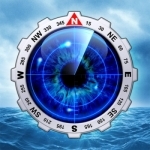
Compass Eye Bearing Compass & Marine Navigation
Navigation and Travel
App
Professional Bearing Compass with real-time camera and map views, bearing markers and 8x zoom. ...
